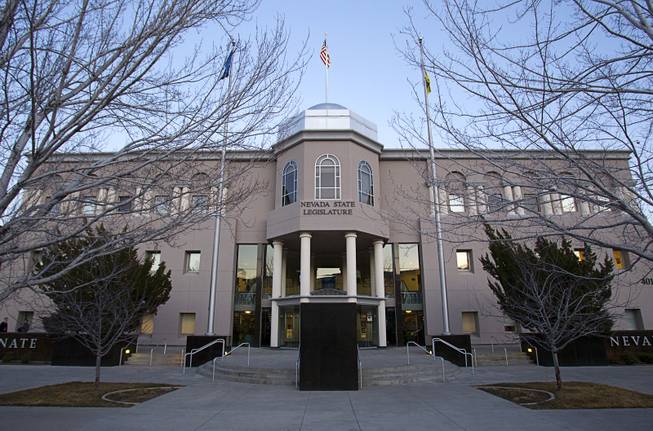
A view of the Nevada State Legislature building in Carson City on Monday, Feb. 11, 2013.
Sunday, June 2, 2013 | 2 a.m.
Sun Archives
As the Legislature speeds toward its conclusion Monday, Southern Nevada legislators say they’ve begun flexing the might of the state’s most populous region.
They say they’re working hard to pass bills that would help Southern Nevadans, such as a measure to rework the way local tax dollars are divvied up and another that would take the mining industry’s tax protections out of the constitution.
For the first time, Southern Nevada legislators organized early in the session to agree on priorities, but it’s unclear how effective they’ve been in pushing through legislation that would help Southern Nevadans.
“The way the Southern Nevada legislators approached this session was fantastic,” said Brian McAnallen, vice president of government affairs with the Las Vegas Metro Chamber of Commerce. “Now we’re having conversations, moving forward on policy issues, having a Southern Nevada agenda, but we haven’t seen the end product.”
While lawmakers worked an agreement to flow more state funding to Southern Nevada’s higher education institutions, they failed to address an overhaul of the funding formula that critics say shortchanges Southern Nevada’s kindergarten through 12th grade students.
On the other hand, new money for English-language learners and expanded full-day kindergarten will flow mostly to Southern Nevada.
Although Republicans and Democrats usually battle at the State House, advocates for Southern Nevada interests have reasoned that Clark County could make major gains if Republicans and Democrats vote for their region rather than their party.
Fifteen of the state's 21 senators and 33 of state's 42 members of the Assembly represent districts wholly in Clark County. That’s more than three-quarters of the Legislature.
Senate Minority Leader Michael Roberson, R-Henderson, said this year’s efforts to advance a Southern agenda at the Legislature have been “better, but not good enough.”
While he said it would’ve been great to pass more than a bill to study changing the school funding formula, many other bills are still in play with just one day left for the Legislature.
“A lot of bills have not passed yet,” he said. “I’m not ready to declare victory.”
Here’s a look at the big bills for Southern Nevada, and where they are in the legislative process:
-
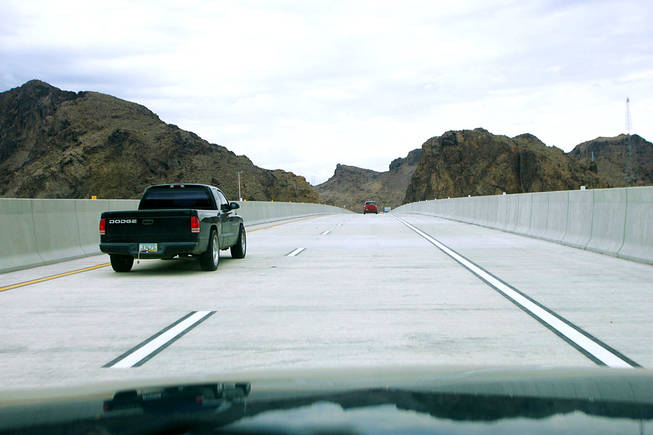
Transportation
A major bill that could affect transportation dollars for Southern Nevada road projects appears delayed in the Senate because of disagreements between Gov. Brian Sandoval’s office and Democrats in the Senate.
Senate Bill 322 would change the composition of the state’s transportation board. While that may seem insignificant, supporters say the board has shortchanged Southern Nevada for years and has favored Northern Nevada road projects like the Interstate 580 expansion between Carson City and Reno.
The bill’s sponsor, Sen. Mark Manendo, D-Las Vegas, said it just makes sense to have more Southern Nevada interests on the board because the majority of the state’s population resides in Clark County and most of the gas tax revenue that funds statewide road projects originates in Clark County.
The proposal would remove the governor, lieutenant governor, attorney general, and state controller from the board. It would revise the composition of the new board to include 11 members based on the population of the state, a move that would clearly benefit Clark County, which would have eight members.
Right now, Washoe County, Clark County, and a rural representative comprise the regional appointees on the board, which allows Northern Nevada to outvote Southern Nevada.
Sandoval opposes that version of the bill, but said he would favor a compromise which removes the attorney general, who is from Southern Nevada, from the board and added one more individual from Clark County to the board.
Asked if that would ensure adequate representation for Southern Nevada, the governor answered: “That would assume there is inadequate representation on the board now. I think it has always been sufficient, but this will strengthen Southern Nevada representation.”
Others don’t see any need to compromise.
“For us, SB322 is a big one,” said David Damore, a professor of political science at UNLV, who has been involved with the legislative Southern caucus. “If that’s either killed or watered down, there’s really no excuse for that.”
-

Public schools
A study last year showed that the Clark County School District gets less than it should from the state, but lawmakers won’t change that system this year.
Instead, they voted 19-0 in the state Senate to carefully study the issue and come back in 2015 with a plan to change the education funding formula. Senate Bill 500 still needs a vote in the Assembly.
Right now, the state divides its education money between counties through a complicated and antiquated formula that doesn’t consider poverty and English-language learner status.
Clark County is home to high numbers of students living in poverty and students with limited English proficiency.
Instead, the bill from Sen. Debbie Smith, D-Reno, would create the Task Force on K-12 Public Education Funding to study the issue.
While Speaker Marilyn Kirkpatrick, D-North Las Vegas, and Senate Majority Leader Mo Denis, D-Las Vegas, had earlier said they’d like to see changes this year, legislators say they don’t want to hastily remake a complicated formula.
“I know that it seems like things move slow up here, but it is a reality,” Smith said.
She said the governor’s $50 million investment in English-language learner programs will “exponentially” go to Clark County.
“There should be some reassurances there,” she said.
-

Higher education
Legislators look poised to approve a plan that would send $37.5 million more to Southern Nevada colleges than they’re receiving now.
A legislative committee apportioned significantly more to UNLV, Nevada State College, and the College of Southern Nevada than both the governor and Board of Regents had recommended.
“I think the southern schools should be ecstatic,” said Assemblyman Paul Anderson, R-Las Vegas.
But that proposal is wrapped up in the overall state budget and still needs approval from the whole Legislature.
Under the proposal, the four Northern Nevada colleges and university would lose money, a fact that doesn’t sit well with rural legislators such as Sen. Pete Goicoechea, who has said he might vote against the state budget if legislators don’t find $6 million more to help Great Basin College in Elko and Western Nevada College in Carson City.
Democrats have quipped that Goicoechea would have that money if he was willing to vote for their tax proposals. But Goicoechea said he’d have to see a “reasonable” plan before he considered that.
-
Gas tax and road projects
A proposal to authorize the Clark County Commission to hike gas taxes has passed the Assembly 34-7 and awaits a vote in the Senate.
The Regional Transportation Commission of Southern Nevada introduced Assembly Bill 413 earlier this year to tie state and local gas taxes to the inflation rate, a move that would mean Clark County drivers would pay an extra 3 cents per gallon every year.
It’s also a priority for the Las Vegas Metro Chamber of Commerce.
“If we get (Assembly Bill) 413, that’ll prove we’ve been successful with the South getting together and working through a complicated issue,” McAnallen said.
The significantly amended bill would require a two-thirds vote of the Clark County Commission to go into effect, and it would expire after 2016 if voters don’t approve its continuation at the ballot.
Supporters of the bill say raising the gas tax is the only way to build necessary road projects when gas tax revenues have been declining as motorists are using electric vehicles or fuel efficient cars.
-
Sales tax hike for police
A bill to permit an increase in the sales tax to allow Metro Police to retain 300 officers has passed the Senate, 18-3.
Assembly Bill 496 would permit a temporary sales tax increase of 0.15 percent if two-thirds of the Clark County Commission approves it. An affirmative vote would raise the tax rate to 8.25 percent in Clark County.
The police department has argued throughout the session that reductions in property and sales tax collections due to the economic downturn have strained the budget and require the tax increase to sustain current levels of service.
Critics argue that the so-called “More Cops” tax won’t lead to more police officers on the streets.
Sen. David Parks, D-Las Vegas, amended the bill in May to require the tax increase to expire by Sept. 30, 2017.
The bill awaits a final vote in the Assembly to accept Parks’ amendment.
-
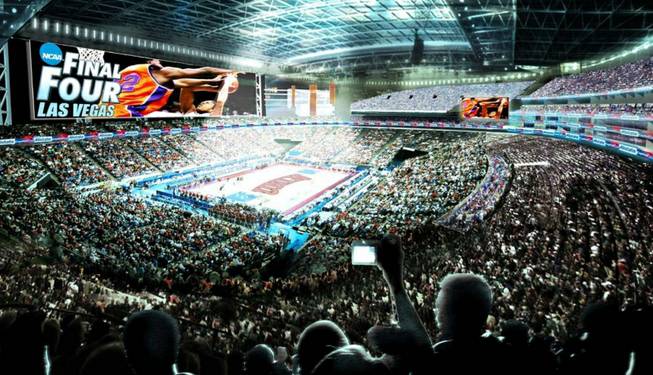
UNLV Now
Although officials at UNLV had high hopes that the Legislature would help the university with a bill to partially fund a grandiose mega-stadium, nothing of the sort is likely to happen now.
Assembly Bill 335 would have created a special tax district as one component of the stadium’s financing plan. But as it became clear that other aspects of the funding weren’t coming together, Assembly Speaker Marilyn Kirkpatrick, D-North Las Vegas, decided to gut the bill in an amendment.
Now the bill calls for the formation of a study committee to examine the financing, design and location of a large stadium in Southern Nevada.
"I got rid of 99.9 percent of the bill, but I do believe the (authority) is important," Kirkpatrick told legislators late last month. "It allows them to really have a solid conversation and a solid plan of what their own expectations are."
In a repeat of the 2011 legislative session, various competing groups have been running around the Legislature looking for support to finance a stadium in Southern Nevada.
Kirkpatrick said the study committee created under Assembly 335 would allow stakeholders to hash out the details of a stadium plan and bring a proposal to the 2015 Legislature.
The bill, however, still needs to pass both the Assembly and Senate.



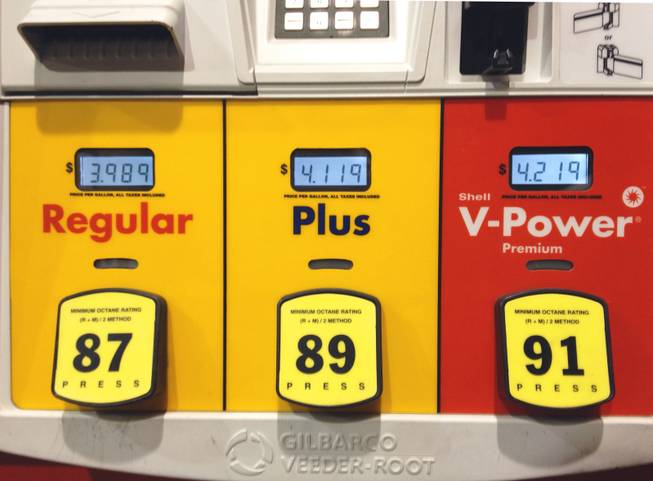
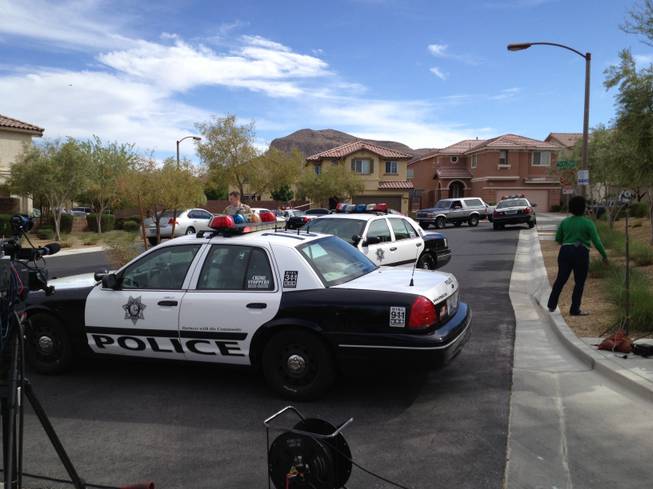


Join the Discussion:
Check this out for a full explanation of our conversion to the LiveFyre commenting system and instructions on how to sign up for an account.
Full comments policy